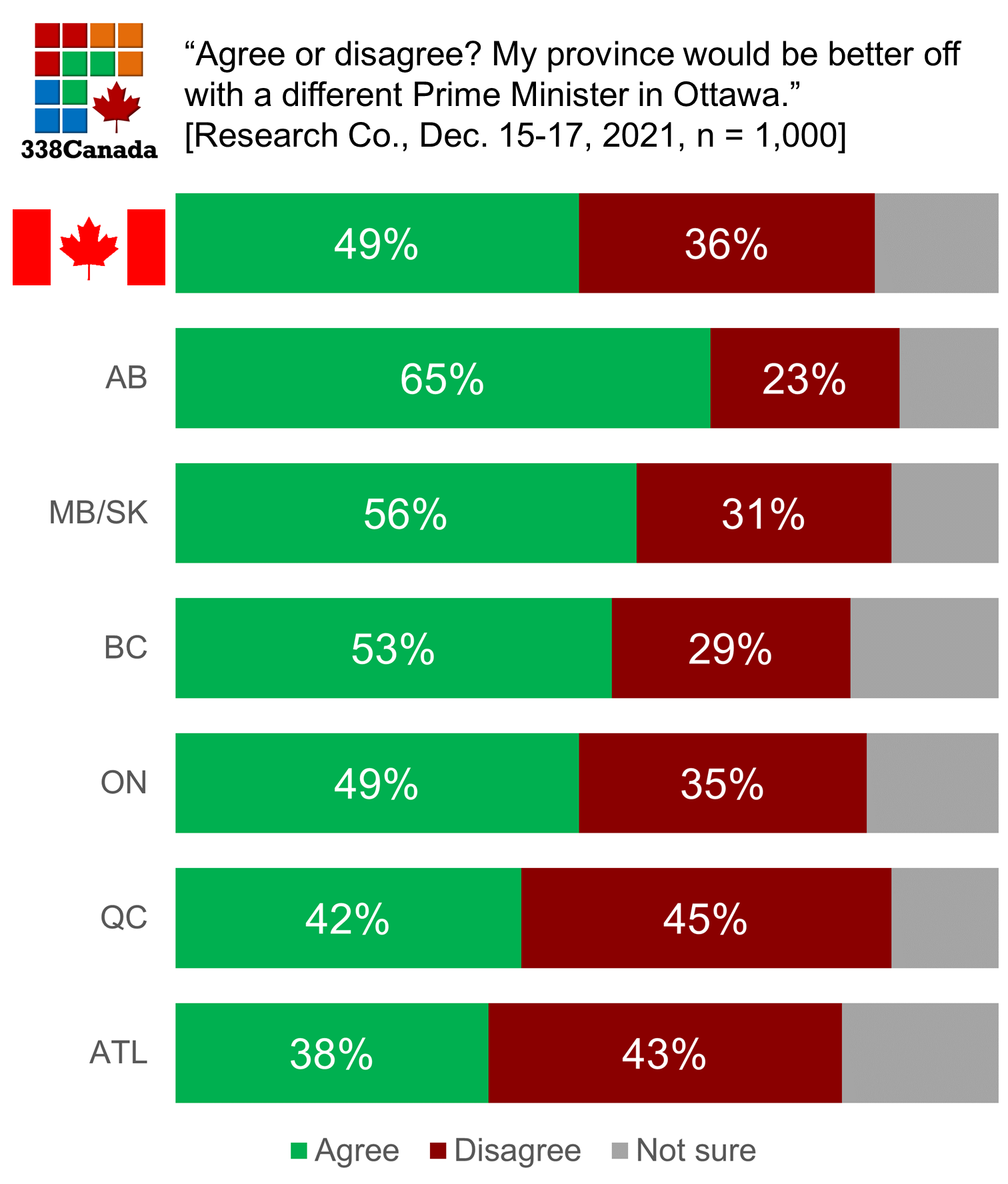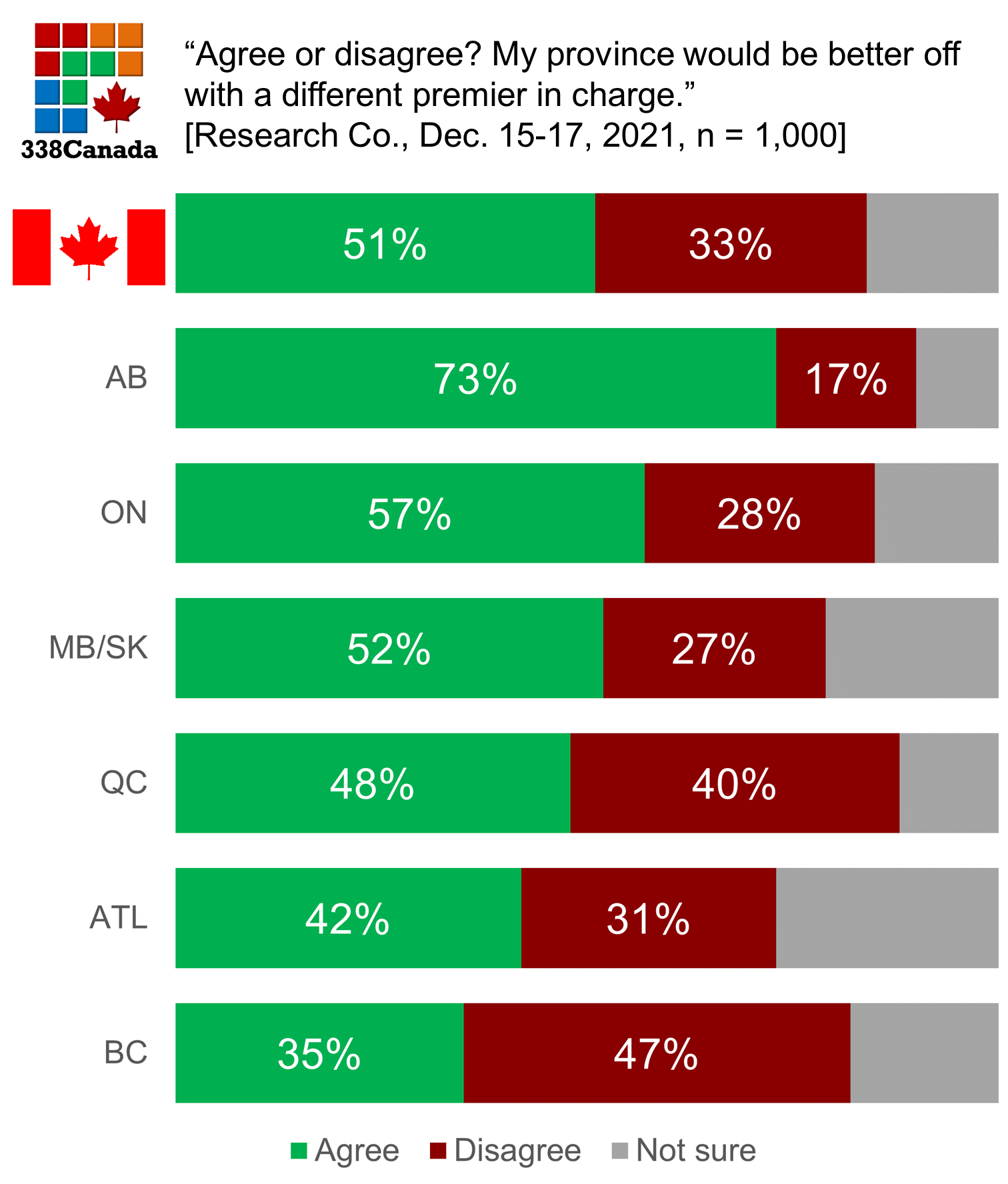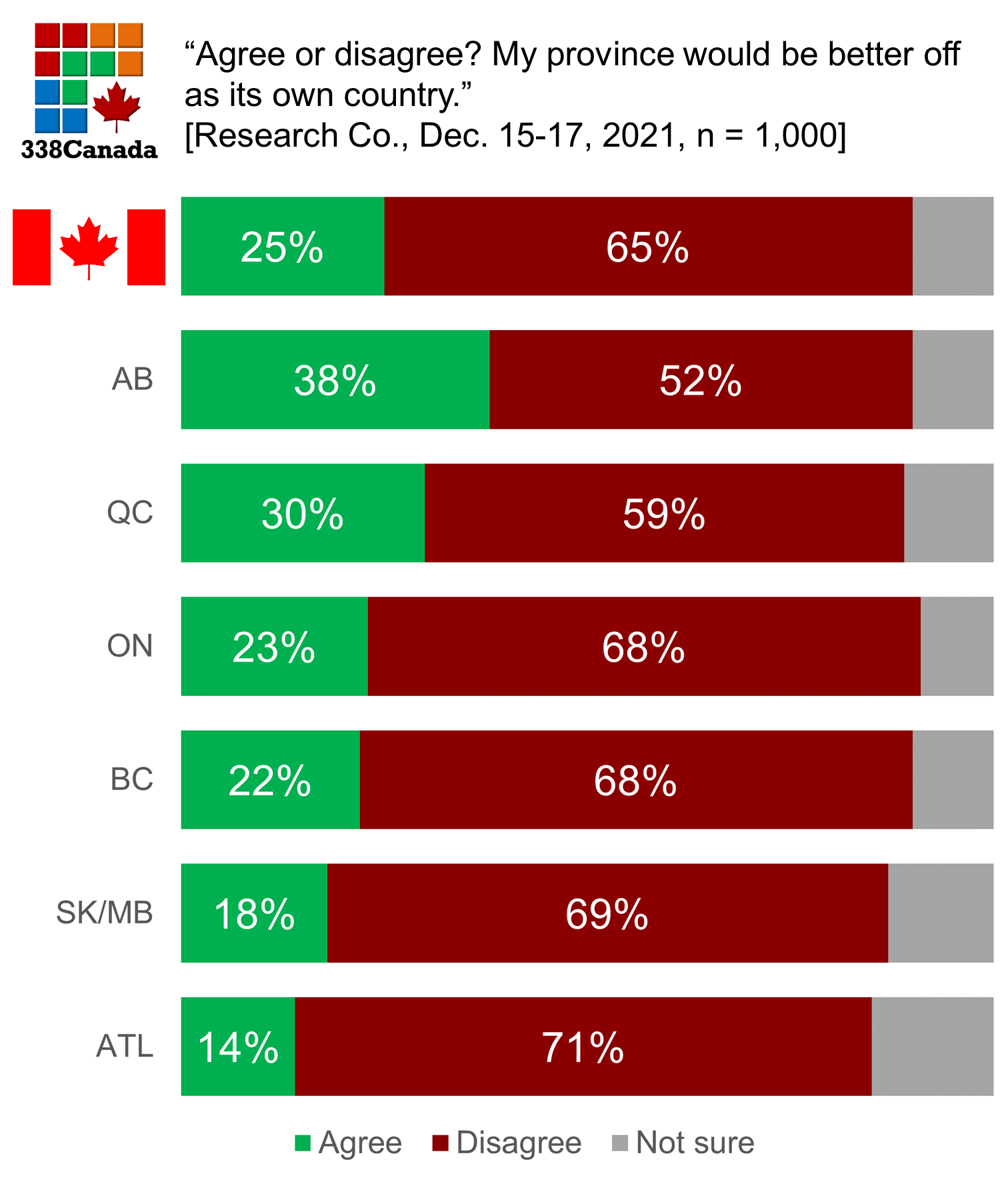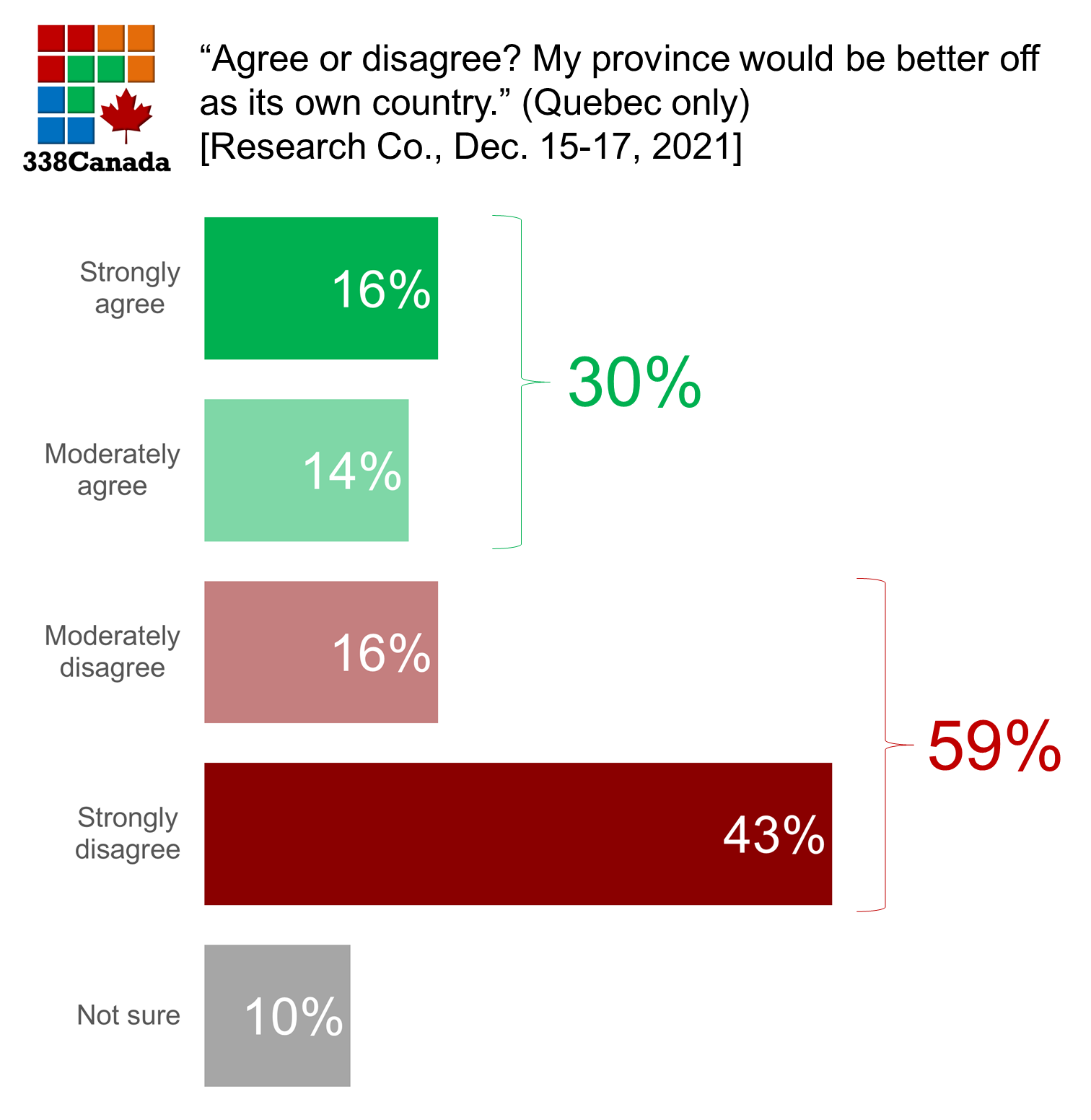338Canada: Who’s still angry at Ottawa
Philippe J. Fournier: A new survey looking at federal-provincial attitudes suggests that even in Quebec and Alberta, regional resentment is not on the rise
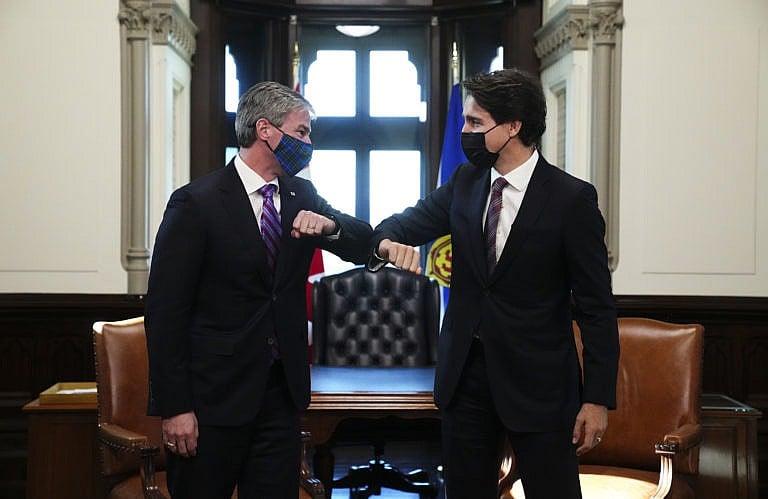
Trudeau meets with the Premier of Nova Scotia Tim Houston in his office in the West Block on Parliament Hill on Nov. 22, 2021 (Sean Kilpatrick/CP)
Share
From a strictly political point of view, the pandemic may have acted as a political stress test for provincial-federal relations in Canada. In the past year and a half, we have witnessed a number of bumps in the road between provinces and the feds. To name but a few from an exhaustive list pertaining to the pandemic: While health care is a provincial jurisdiction, it was the federal government that negotiated with pharmaceutical giants for the procurement (and distribution) of vaccines, and although provinces are in charge of elder care, the federal Liberals campaigned on implementing national standards just last fall. Such is politics in a decentralized federation like Canada.
Just before the Holiday break, the Vancouver-based polling firm Research Co. took the pulse of Canadians on their satisfaction with provincial and federal leaders, as well as an interesting measure of provincial resentment throughout the country.
Let us begin with the Prime Minister. To the statement: “My province would be better off with a different Prime Minister in Ottawa”, half of the poll respondents (49 per cent) agreed, while 36 per cent disagreed. Unsurprisingly, majorities in the western provinces agreed that a change in the PMO would be beneficial for their respective provinces. Only in Quebec and Atlantic Canada did more respondents disagreed (and barely so).
Now let’s dive into numbers for the premiers. To the statement: “My province would be better off with a different premier in charge”, results show half of respondents (51 per cent) agreed, and one third disagreed. Majorities in conservative-led provinces of Ontario and throughout the prairies believe their provinces would benefit from a change of premier, with the highest proportion of 73 per cent in Alberta. Only 17 per cent of Alberta respondents disagreed.
Even Quebec Premier François Legault scored lower than in other recent polls on provincial satisfaction: 48 per cent of Quebecers agree that Quebec would be better off with a change of premier. Considering this Research Co. poll was in the field in mid-December, just as COVID-19 infections and hospitalizations were sharply trending upwards, it is not implausible that the pandemic may have begun to take a toll on Legault’s stellar popularity from the past three years. Two weeks prior, the latest Léger tracker had measured an approval rating of 70 per cent for Legault’s handling of the pandemic.
As for British Columbia Premier John Horgan, he once again finds himself among the country’s most appreciated premiers. Only 35 per cent of B.C. respondents agree that a change would be beneficial, while close to half (47per cent) disagreed.
Finally, one question in particular caught my attention in this Research Co.’s survey: “Agree or disagree? My province would be better off as its own country.” Across Canada, 25 per cent of respondents agreed, while 65 per cent disagreed. Breaking the results down by region of the country, we find that the proportion of respondents who believe their province would be better off as a country jumps to 38 per cent in Alberta and 30 per cent in Quebec (see full tables here).
Naturally, we must be careful with regional subsamples, as their uncertainty is higher than with the full sample. Nonetheless, we note that nearly one-third of Quebec respondents believe that the province would be better off as a separate country, which is consistent with the most recent figures on Quebec sovereignty (since Quebec sovereignty has not been on the radar much in the past years, polls on the topic have been less frequent).
Nevertheless, if we dive into the Quebec results in more detail, we find that only 16 per cent of Quebec respondents “strongly agree” with this statement, with another 14 per cent saying they “moderately agree”.
This data should help put to rest persistent online rumours that François Legault may secretly be preparing a third referendum on Quebec independence. Although polling has shown that Legault may be the most appreciated premier in the past decades in Quebec, his popularity and nationalist attitude has not translated into additional support for sovereignty.
As for Alberta, 16 per cent of respondents “strongly agree” that the province would fare batter on it own, while another 22 per cent “moderately agree”. According to Research Co. CEO Mario Canseco: “Separatist sentiment in Alberta is currently near the levels observed in December 2019 (40 per cent)”.
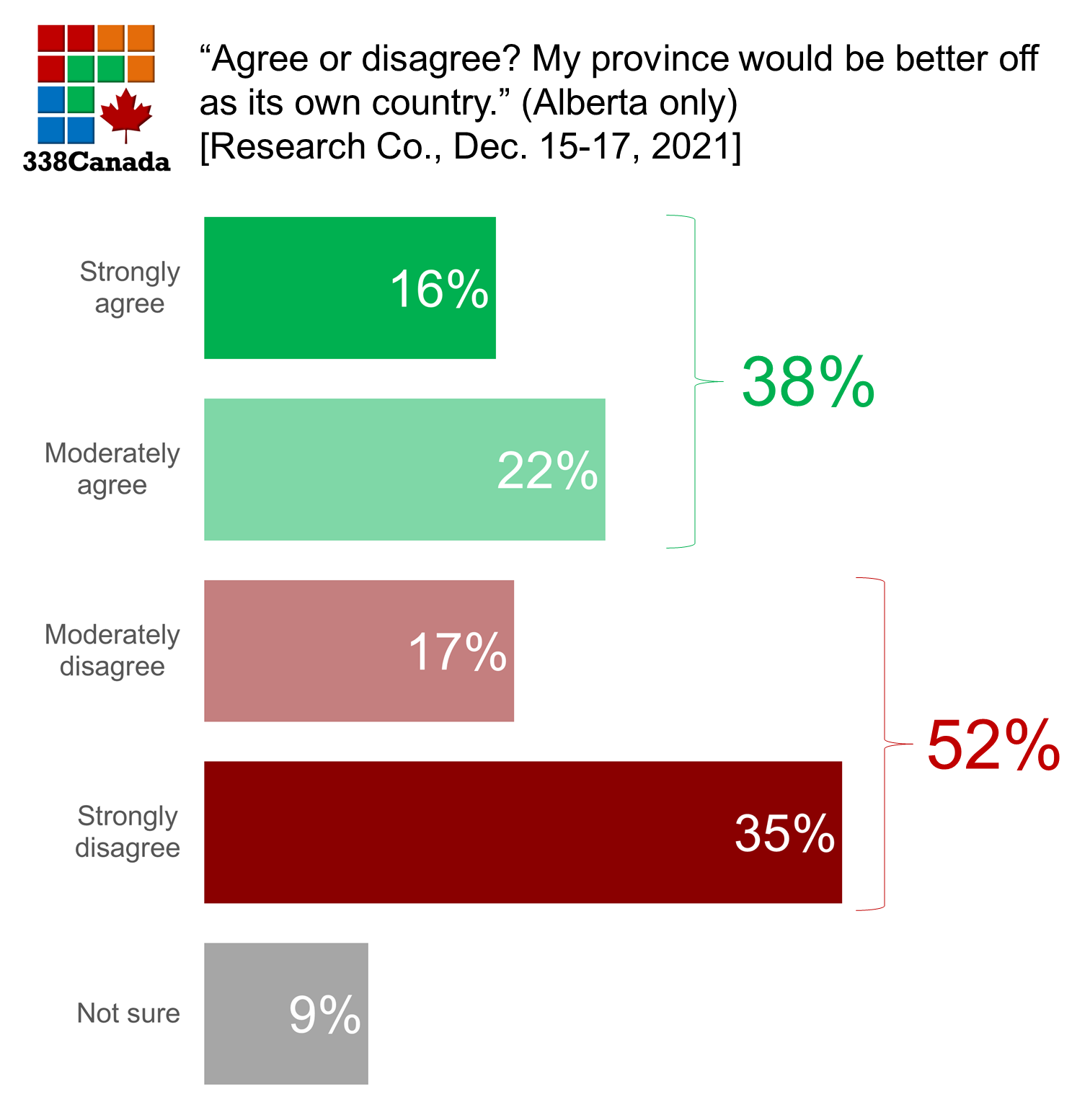
Resentment towards Ottawa has undoubtedly grown in Alberta since Trudeau and the Liberals won power in 2015. However, let us recall that the pro-Western independence Maverick Party took a measly 1 per cent of the Alberta vote in last fall’s federal election, while provincially the Wildrose Independence Party has been polling between 5 and 15 per cent for most of 2021 (WIP’s very best poll was 20 per cent of voting intention province-wide, as measured by an Angus Reid survey in June 2021).
Regional resentment and separatism will always be something to watch in this country, such is the reality of living a vast, diverse and multinational state. Interestingly though, available data thus far shows that the pandemic has not significantly moved the needle on those resentments.
